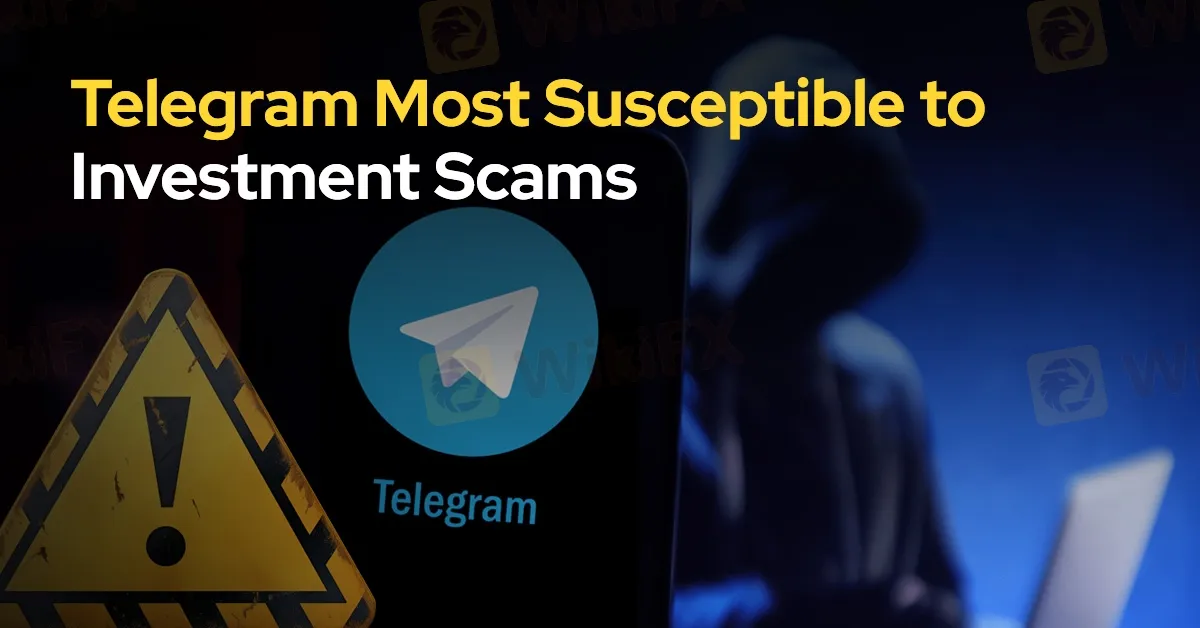简体中文
繁體中文
English
Pусский
日本語
ภาษาไทย
Tiếng Việt
Bahasa Indonesia
Español
हिन्दी
Filippiiniläinen
Français
Deutsch
Português
Türkçe
한국어
العربية
Telegram Most Susceptible to Investment Scams
Abstract:Investment scam syndicates are increasingly exploiting Telegram as their platform of choice to deceive unsuspecting victims in Malaysia

Investment scam syndicates are increasingly exploiting Telegram as their platform of choice to deceive unsuspecting victims, according to Malaysias Bukit Aman Commercial Crime Investigation Department (CCID) director, Datuk Seri Ramli Mohamed Yoosuf. He revealed that Telegram was involved in 1,455 cases, accounting for 34.6% of total investment scam incidents reported in 2024.
Following Telegram, other platforms frequently targeted by these syndicates included Facebook and WhatsApp, with 1,035 and 958 cases, respectively. In addition, some scams were orchestrated through platforms like Instagram, websites, dating sites, Line, WeChat, and phone calls, although these channels were used less often.
Between January and September 22, 2024, a total of 4,205 investment scams were reported, resulting in RM526.97 million in financial losses. While Telegram emerged as the most widely used platform with losses estimated at RM32 million, WhatsApp scams caused the highest monetary damage, leading to losses of RM175.5 million. Facebook scams followed closely, resulting in RM159.5 million in losses. Authorities cautioned the public to remain vigilant when using these platforms, noting that many investment schemes presented through these channels are not verified.

Beyond online platforms, investment scam syndicates frequently exploit company-registered bank accounts to facilitate transactions, taking advantage of the ability to process large sums of money without triggering suspicion. According to the CCID, 1,369 bank accounts from 487 mule companies were linked to scams this year. These mule companies are often led by financially distressed individuals who are recruited through social media and persuaded to become directors in exchange for commissions.
Once onboarded, these individuals are instructed to open bank accounts under the names of newly registered companies and transfer control of these accounts to the scam syndicates. In return, they receive commissions. Datuk Seri Ramli urged job seekers to be cautious of offers that appear too attractive, particularly those offering the position of company director, as such roles could entangle them in serious criminal activities.
On a related note, Telegram‘s CEO, Pavel Durov, recently announced new security measures to combat illegal activities on the platform. Telegram will now share users’ IP addresses and phone numbers with authorities in cases involving criminal activity identified through its search feature. Additionally, the platform is enhancing moderation through artificial intelligence and human oversight, while encouraging users to report illicit content. Despite these measures, Durov reaffirmed Telegram's commitment to user privacy, emphasizing features such as disappearing messages and end-to-end encryption, while ensuring that user messages will never be shared with third parties.

Disclaimer:
The views in this article only represent the author's personal views, and do not constitute investment advice on this platform. This platform does not guarantee the accuracy, completeness and timeliness of the information in the article, and will not be liable for any loss caused by the use of or reliance on the information in the article.
Read more

Standard Chartered Secures EU Crypto License in Luxembourg
Standard Chartered secures Luxembourg crypto license, focusing on Bitcoin and Ethereum custody services as it expands digital asset solutions across the EU.

U.S. to Auction $6.5 Billion in Bitcoin in 2025
The U.S. government plans to auction $6.5 billion in Bitcoin seized from Silk Road in 2025. Analysts debate market impact as BTC prices show mixed reactions.

Female Celebrity Voluntarily Surrenders Over SEC Violation Charges
Rufa Mae Quinto faces 14 counts of SEC violations linked to Dermacare's investment scheme. She denies fraud allegations and posts P1.7M bail.

RM5.9M Lost to "Davidson Kempner Capital Management" Facebook Scam
A private contractor in Malaysia faced a devastating loss of over RM5.9 million after falling victim to a fraudulent investment scheme promoted on Facebook. Tempted by the scheme’s impressive claims and credentials, the victim began investing in September 2024. The investment process required him to download an application called A-Trade, which was readily available on the Apple Store.
WikiFX Broker
Latest News
High-Potential Investments: Top 10 Stocks to Watch in 2025
US Dollar Insights: Key FX Trends You Need to Know
Why Is Nvidia Making Headlines Everywhere Today?
Discover How Your Trading Personality Shapes Success
FINRA Charges UBS $1.1 Million for a Decade of False Trade Confirmations
Bitcoin in 2025: The Opportunities and Challenges Ahead
BI Apprehends Japanese Scam Leader in Manila
Big News! UK 30-Year Bond Yields Soar to 25-Year High!
SQUARED FINANCIAL: Your Friend or Foe?
Join the Event & Level Up Your Forex Journey
Currency Calculator






